 Superstition Judy Murray and the visit of Ricky Gerva helped Murrey to win their first Uimbledo title
Superstition Judy Murray and the visit of Ricky Gerva helped Murrey to win their first Uimbledo title
Judy Murray (mother):I saw how devastated Andy was when he lost in the final to Roger Federer a year ago. I just prayed that his body would be okay and that he could handle all the pressure and distractions that come to Wimbledon.
Jez Greene (fitness coach): Andy knew how good he was. In last year's final he was a set and a break with Roger, then the roof closed and Roger started doing Roger's stuff. Andy got his revenge in the Olympic final by winning straight sets. But in 2013, questions arose about his back, which had been stuck during the Italian Open six weeks earlier. In the end, we decided to skip the French Open, thinking, “What’s the point when you can train on grass for an extra month?” It was part physical and part strategic. But I think Andy may have needed a cortisone shot to fix his back.
Mark Bender (phys):In May 2013, my colleague Andy Ireland called me. Andy pulled out of the French Open and was feeling bad. An MRI showed that one joint in his vertebrae was very badly damaged. He had pain radiating down his leg. And in a way, I think it did him good. After feeling he couldn't get past the five-set matches in Paris, he began to improve physically and was very excited to win at Queen's. He began to think, «God, I have nothing to lose here.» It took some of the pressure off him.
Friday, June 21st The Wimbledon draw lists Benjamin Becker (no relation to Boris) as Murray's opponent in the first round. On paper, he is expected to play Rafael Nadal in the semi-finals.
Judy: I've been in the game long enough to never look beyond the first round. In the media, people will pave the way for the final as soon as the draw is announced, but I think: «For God's sake, one match at a time.»
Marion Bartoli (women's champion 2013):It was raining on the Sunday before the tournament and we were the last two players to practice at Aorangi Park before the courts closed. Andy later told me, “I knew we both would go far because we were the only ones standing there.”
Judy: During matches, I try to sit next to Leon on the outer seat. Someone I've always known, someone who knows I don't want to be talked to during a match. No chit-chat!
Leon Smith (Child Coach and Davis Cup Captain):In a support box like this, you don't want everyone to go crazy because it would look ridiculous. We had a good balance: Ivan [Lendl] was deadpan, Matt [Little, Murray's fitness trainer] was energetic, Kim [Murray's wife] who knew exactly what Andy needed. You should be locked out for the entire match because you don't want Andy to look up and see someone chatting or eating Haribo.
3006 andy murray
Jamie Murray (brother and future first world racket in doubles): I was not in the box during that tournament. It's just not that convenient. You have to be aware of how you react because he picks up on all these things. I like watching TV more.
Bender:Ivan is a man of few words, one who can say chapters and chapters with one glance. He was the backbone of the team, bringing different people together. It struck me that after practice or matches, Ivan would simply say, “Well done, Andy,” pick up his golf clubs, and head to the course. But then you could see that when Ivan said something as simple as «You move well on the court», Andy's whole body language went up.
Ivan Lendl (coach): I don't really think about 2013. When I do this, I just remember how well Andy played. You know me. I don't think backwards or forwards.
Rob Stewart (retainer): I lived 15 minutes from Andy and drove him down the A3 from Oxshott to the All England Club every morning in this battered old Volkswagen Polo. We chatted about anything, football or politics, but not tennis. This Polo has always been the shabbiest car in the entire Aorangi car park, which I thought was very Andy. If you drive to Wimbledon every day, do you want to sit in a car that attracts attention?
Bender:Judy brought her mother's shortbread cookies with her in an old metal tin. It was passed on to the player's mailbox and to Andy's friends and family. When it was given to you, you felt that you were taking communion. And once he got through the first couple of rounds, it became an integral part of the experience. It was a damn beautiful shortbread cookie. The sugar level was quite high, but we needed to increase it in order to pass.
Wednesday, July 3rd. Having beaten Becker, Lu Yen-xun, Tommy Robredo and Mikhail Youzhny in straight sets, Murray faces the dangerous Spaniard Fernando Verdasco in the quarterfinals.
Judy: It was funny when Andy drew Fernando Verdasco in the quarterfinals because it took me back to Andy's first Challenger tournament when he was just a skinny 16 year old in shorts that were too big for him. It was in Segovia, not far from Madrid, and I remember the trip was quite traumatic as I was trying to cope with driving on the other side of the road. Verdasco was three or four years older and won 6-1, 6-3, but towards the end Andy began to master the speed of the shot. I thought: «Wow, this is it, the next level!» And then when I was sitting at the bar afterwards, one of the older players said, «Do you mind if I sit with you?» He started telling me about the dangers of the tour, the things Andy needs to look out for, match fixing, and people offering vitamins that might not be vitamins. I remember thinking, «Oh my God, this is going to be a very different ride from the junior circuit!»
Matt Little (Fitness Coach):Both Rafa [Nadal] and Roger [Federer] lost in the early rounds, which really put pressure on Andy. By the time he got to Verdasco, I think he was feeling a lot of pressure from the crowd.
 Sir Alex Ferguson's reaction during the quarterfinal match between Andy Murray and Fernando Verdasco. Photo: Getty Images/Clive Brunskill
Sir Alex Ferguson's reaction during the quarterfinal match between Andy Murray and Fernando Verdasco. Photo: Getty Images/Clive Brunskill
Judy:Before the quarter-final, I met Sir Alex Ferguson at the players' restaurant for tea. The conversations with Sir Alex were like gold dust and he has been a huge source of advice for me and Andy since 2005. I escorted him to Center Court and, of course, fans and photographers followed us almost immediately. One guy was walking backwards, looking at us with the biggest video camera I've ever seen. He said: «Sir Alex, a few words for the Spanish media?» Sir Alex says, “Yes, of course. Goodbye Amigo.» Then he turns to me and says, «It's very important that every language has two words that mean the same thing.»
Green:Verdasco started like a train, hitting a big ball. I didn't think Andy would lose, but I thought we needed something. Then Andy passed at a fairly long spot and it changed the atmosphere of the match. He's been on fire ever since.
Judy: Verdasco is very dangerous, but if you stay with him, you'll get him to the point where he starts to lose focus or get irritated with himself, you can always change everything. And Andy knew it. However, for a while it looked like this: «Well, here it is again.»
Friday, July 5th After a five-set epic over Verdasco, Murray meets with an unexpected semi-finalist and seeded under the 24th number, Jerzy Janowicz. place in the final.
Dani Vallverdu (assistant coach): The break during Janovic's semi-final was funny. It's been one set and Andy is going crazy because they're going to close the roof. This guy plays well, throws bombs, so Andy was very worried. And then they both go to the shower, and Andy comes out and says: “He's just singing there! I think we'll be fine.»
 Andy Murray's frustration was evident when he spoke to Championships& #39; referee Andrew Jarrett Photo: Getty Images/Mike Hewitt
Andy Murray's frustration was evident when he spoke to Championships& #39; referee Andrew Jarrett Photo: Getty Images/Mike Hewitt
Lendl (asked if he remembers the story of Janovic singing during the break): This may surprise you, but I don't go after the guys in the shower.
Green: After the semi-finals Dan Bloxham [head coach of the All England Club] brought some wine to where the gym was under the stadium. Ricky Gervais also came down. Andy was very nervous meeting him because he's a big fan of The Office — that's Andy's classic deadpan humor. Gervais was a good guy, very good at breaking ice, and then Janovic also had a drink with us. It was a really nice moment.
Sunday, July 7th In a second consecutive Wimbledon final, Murray faces 2011 champion Novak Djokovic, who defeated him in the Australian Open final six months earlier.
Smith: The morning before the final, I remember how I met Judy at breakfast in the village of Wimbledon, so early that she wasn't even busy yet. There was a real buzz — maybe a little more anticipation than against Roger last year, and nervousness about it.
Judy:Before the final, I was sitting on the balcony of the gaming restaurant alone. I drank a cup of tea and a donut with lemon ice. I had one on the first day of Andy's first match and kept doing the same thing every game day like superstition. I really didn't want him for the final because I was very nervous. But I didn't want to break the superstition just in case. And I got a message from one of my friends, «How's your donut?» Turns out they were watching a BBC TV program in Glasgow and one of those drones picked me up on the balcony. I thought, «There is no privacy anywhere.» Anyway, it worked.
Stuart: When you drive down the A3, there are certain bottlenecks where things slow down. Like all of us, you look around and see what's going on past you and all that. We're used to people cheating when they see Andy. But on the morning of the final, I remember one car came back after five or ten minutes. They wrote: «Come on, Andy!» on an A4 notebook and held it by the window.
Small:The pre-match warm-up was pretty funny because Novak's team started warming up. area in front of us. There was no room for Andy, so I ended up warming him up in this very narrow hallway outside the gym. I always throw balls to get Andy to react, and because I was very nervous, I threw them everywhere, which did not escape his attention.
Vallverdu: The tactic was to get Novak to shoot on goal. He needed to feel that if he just rallied, Andy would punish him. If you look at Novak's error rate, it's probably higher than the average for that day. If you don't increase Novak's error rate, you'll be in trouble. Andy stuck to the plan. He served brilliantly, brilliantly and returned. Almost every time he managed to hit the ball with his racket, he returned it to the game.
Green:At the beginning of the match, Andy began to say: “My shoes are not the right ones, I need new ones pair!» He was hysterical, going crazy.
Bender:The fact is that Andy can just forget something, not pack it. It wasn't something like a one-off. Most of the time, the rest of the team had everything — extra gear, often because he was like, «Oh shit, I forgot about that.» In this case, I think it was orthopedic insoles, not shoes.
Stewart: There was a lot of talk that year about how slippery the courts were. Several players fell and were injured. Whatever it was, Dani realized that Andy was unhappy with his shoes, and a rumor was spread that he did not have a spare pair. I think it was 2-1 in the first set. I had my car keys in my pocket and ran back — a real sprint — to the grassy car park at the back of Aoranga, then exited onto the A3. At Andy's house, I didn't even get out of the car and go into the entrance. We called ahead and someone threw a shoe over the wall. I came back to Center Court 3-2 in the second set, and if you put it in Google Maps, it's theoretically impossible. Surprisingly, I didn't get a speeding ticket. I remember thinking to myself, “Wouldn’t it be a great story if he won and it was all about shoes?” But you know what? He put them next to the judge's chair and didn't even put them on.
Bender:In the seven years that I spent with Andy, there was always a sense of insecurity. Is there something missing in the first aid kit? Does he have spasms? Does he need an electrolyte? In this team environment at the court, you have very heightened senses. He's one of those guys who gets his competitive edge by being in the trenches. He wants to get mad at someone or something in order to get into the red zone. Whether it's screaming «I don't have my fucking shoes» or «I don't have orthopedic insoles», it's definitely a process of increasing its intensity. To achieve this, he created chaos in the team, like John McEnroe ranting about the referee in the chair. When I stopped working with him in 2019, my blood pressure dropped by about 30 percent.
Vallverdu: I think that year Andy was calmer, he controlled his ups and downs. Lendl helped him in this, as well as the clarity of the game plan. Andy strove for his serve and forehand and stuck to it even when things didn't go well. There were difficult moments against Novak, moments when he could return to defense. He didn't, and that was the key to success.
Judy:I don't remember much about the ending. I remember walking out of the player's box, sitting down three or four rows further. This player's box is uncomfortable to be in because he is mixed. You're sitting there with your friends, Andy's family and team, and your opponent's supporters. Having done this a year before and hating it, I also knew that if you step back, then you are not at the forefront of photography.
 Judy Murray (left) decided not to sit in Andy Murray's box for the final. Photo: Getty Images/Clive Brunskill
Judy Murray (left) decided not to sit in Andy Murray's box for the final. Photo: Getty Images/Clive Brunskill
Green:The last game was crazy. If Andy lost, and Novak bounced back to 5-5, it would be very interesting, Novak saved up all these match points, smiled. It's a bad sign when Novak starts smiling. But I remember when Novak had a break point, Andy had such a short forehand, and he shot across the court at a sharp angle for a clean win. It was a very difficult shot because he was close to the net, so he needed to get the ball up and down quickly, but he went after it with full dedication. I distinctly remember thinking, «He's got it.» And then he ended it two or three points later.
Judy:I usually remember big points and opportunities, but in this case I don't remember anything about the 40-0 final in the last game. I sat muttering to myself, “Just one pitch, Andy! Bash it! Smash it!» My teeth were clenched. I heard and felt my heart beat. I was surprised no one else could hear it. Then it was a two. Novak got the net and it was a game-changer. I wouldn't tell you what I said because you can't print it. But inside I said: “Please don't let it happen.”
Vallverdu: In that last game, for the first time — and probably the only time — I felt Ivan nervous. And it betrayed the fact that he did not speak for 15 minutes, which is very unlike him. He usually talks to you the whole match. I mean, in literally every paragraph, he will say something. But he was completely quiet.
Judy: During the match, Buster Bloodwessel's double was sitting next to me in the stands. He reached across the aisle and waved his fists every time Novak scored a point, yelling whatever they were saying in Serbian. I saw him out of the corner of my eye. I thought, «I'm stressed enough to deal with this, I don't need this football mentality.» I never looked at him, never blinked or hesitated, but when Andy won he was right across the aisle to congratulate. The fact of the matter is, in sports, you can say whatever you want while it's happening, but after that you shake hands. However, I was afraid that he would hit me first.
Andrew Castle (commentator):When Andy finally closed it, Tim Henman, who had been sitting next to me in the cramped BBC commentary booth, jumped up and threw up his hands. The problem was that while doing so, he hit me with his elbow in the temple. I had a bump for a few days. I've been trying to find the perfect line for this great moment in sports history and we're all just lucky I didn't say «Oh fuck!»
Judy: The first thing Andy did after Novak hit on goal from the left, he turned and looked at the press package. Which was quite interesting because he had a very hard time with the media in his early years. He was the only one after Tim and Greg [Rusedski], so everything was on him. I don't know for sure, but I suspect he was thinking, «Well, you can stop asking me when I win Wimbledon.»
Bender: Andy came in with a Pat Cash celebration, running up to the player's box to give everyone a hug. It was just crazy, full pandemonium.
Judy:Since I was standing so far away, I did not join. People said, «Go down, go down.» The reason I didn't do this is because I've been scolded for so many years for being a pushy parent. I thought, «I'm just going to get him in the neck again.» Andy turned around and headed back to the court as the crowd yelled, «What about your mom?» I thought, «OK, I'll go down.» When he hugged me, then Diana Djokovic [Novak's mother] came out to shake hands and congratulate me. It was such a wonderful moment. We have known each other since the boys were 11 years old. Many times when Novak beat Andy, I looked for her to congratulate.
 Andy Murray hugs Ivan Lendl after climbing into the box with the player Photo: AP/Kirsty Wigglesworth not to see her. Photo: PA/Jonathan Brady
Andy Murray hugs Ivan Lendl after climbing into the box with the player Photo: AP/Kirsty Wigglesworth not to see her. Photo: PA/Jonathan Brady
Jamie: I watched the final on my laptop in Stuttgart with my wife. We were going to play there at the tournament next week. It was a pretty weird situation and the stream wasn't even that good. Of course, it would have been great to be there and see him, but in reality it was definitely not a guarantee. He played with Novak, by that time he had lost a bunch of finals. I was just glad he won. I didn't care that I missed it.
Eleanor Preston (Wimbledon Interview Manager): I happened to walk past the warm-up area under the stadium about five minutes after the presentation ceremony. Andy was sitting there, all alone, in his sweaty white clothes, with his racquet bag next to him. And he just stared at the floor without any expression. Processing, I would say.
Green:Champagne was spilled everywhere in the locker room. Everyone was pumped up and laughing. For some reason, I photographed the trophy with Andy's dirty socks and ankle bandages. Andy was very tired, but he felt relieved, joyful and dismayed in equal measure, trying to figure out what he had done. These two actors, Gerard Butler and Bradley Cooper, came up and said, «Well done.» During the match, there were their famous photos in the Royal Box, they were so passionate about it. You know what they are, they go towards the winner. And that with Gerard having Scottish connections, he was Andy's boyfriend. Until a couple of years later he became Novak!
Judy: As soon as I watched the awards ceremony, I had to go into organization mode. Get wristbands for all of Andy's friends and family so they can go up to the members' lawn to celebrate. To get champagne and glasses. To find out who's going to the Dinner of Champions because we didn't come to see Andy in ball gowns at the ready.
 Andy Murray (center) hugs his parents Judy Murray and William at the winners' ball. Photo: Getty Images/Julian Finney
Andy Murray (center) hugs his parents Judy Murray and William at the winners' ball. Photo: Getty Images/Julian Finney
Green:I remember being on the lawn and David Cameron walking across the bridge from the competitors area, leaving the grounds. I drank a few glasses and yelled, «Thanks for coming, Dave!» Then I thought, «Oh shit, I just called Prime Minister Dave.» His security team wasn't too happy, but he was fine, he just smiled. Everyone was very relaxed, very happy. It may sound a bit condescending, but I felt like there was a really good mood in London for the next 24 hours.
Judy: We had two tables at the Dinner of Champions. You go down to the locker rooms and they have turned into Aladdin's cave. For men, these are tuxedos, shoes and personal care. For women, these are wall-to-wall dresses and pashminas, bags, stylists and makeup. Not only for you, but also for those who will go with you. I don't think I relaxed at all until we got to dinner. It was very late and everyone was starving. Andy's media took four hours, we were waiting for him, and Wimbledon's restaurants were closed, so there was no food. We got to the Savoy and found ourselves in a small waiting room with Marion Bartoli. I remember joking with Dr. Bartoli, «You and me at the first dance.» I didn't realize it wasn't really a ball anymore. I grew up loving the first dance. But it was just dinner. I think Andy was really relieved that he didn't have to do that.
Bartoli: Andy had so much press to do that he was exhausted. He arrived at 23:30, we started quite late. I had my louboutins, 16 cm heels, and I stood for three hours waiting for him. My legs were so sore, especially with five blisters from my finale. My leg was all bandaged. But I was wearing boots so no one could see that I was wearing socks. By the time he arrived, I could barely walk.
 Andy Murray and Marion Bartoli pose with their trophies. Photo: Getty Images/Bob Martin
Andy Murray and Marion Bartoli pose with their trophies. Photo: Getty Images/Bob Martin
Little: After the match, it was generally quite strange, because we hardly saw Andy. He entered the dressing room, we quickly congratulated him, and then he disappeared to take pictures with the trophy, do press, try on a suit. At dinner, he also did not sit at the table with us, he sat at the table of champions. I just remember going to Wimbledon the next morning to pick up all of our stuff and finally seeing him sitting on the lawn with a trophy in between another piece of media he was doing. I don't remember the conversation, but I remember the look on his face. I've never seen him so pleased.
Bender:There is still a real brotherhood of that time. When you go through something completely exceptional, it keeps people connected. But I remember Andy's back didn't last long after Wimbledon. As soon as he hit the hard courts, he jammed again and went under the knife due to a discectomy in September.
Judy: The next year when we returned to Wimbledon, I thought, «Okay, let's go, let's eat a lemon donut and have a cup of tea, and let's hope the same thing happens again.» And guess what? They stopped selling lemon donuts.
Simon Briggs (Telegraph Tennis Correspondent):Usually we reporters try to keep a sense of impartiality. But in this case, for the only time in my career, I broke protocol. At the morning press conference, I asked Murray to sign my Wimbledon ticket.
Most of my colleagues did the same. Sports writers tend to be cynical and unsentimental. But as Murray ended his 77-year wait to become the British men's champion at Wimbledon, we were immersed in the story's unfolding meaning. You can go through your entire career and not see anything like July 7, 2013. The pass still hangs in my office.










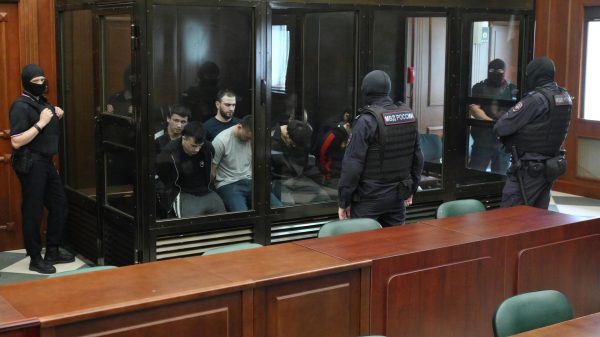








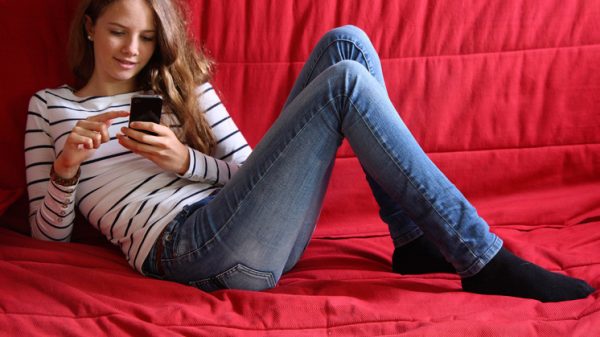
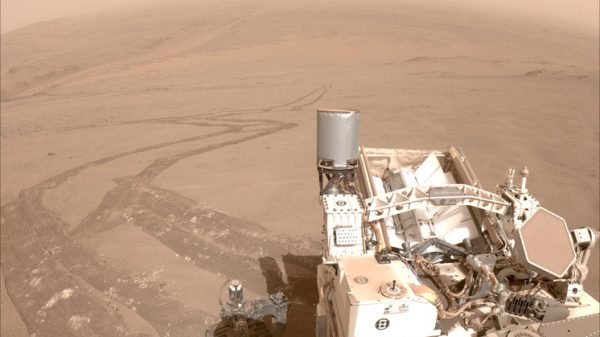
















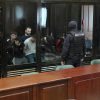
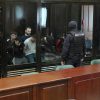

















Свежие комментарии